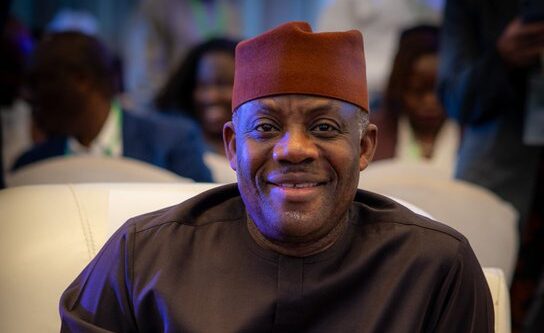The Federal Ministry of Education has dismissed widespread reports suggesting that the Junior and Senior Secondary School (JSS and SSS) system has been abolished, clarifying that the minister’s remarks were merely a proposal for a 12-year compulsory education structure rather than an immediate policy change.
In an official statement issued on Friday, the ministry’s Director of Press, Folasade Boriowo, reaffirmed that the National Council on Education (NCE) would review the proposal before any concrete decision is made.
The speculation arose following the Extraordinary National Council on Education Meeting held in Abuja on February 6, 2025, where the Minister of Education, Dr. Maruf Olatunji Alausa, introduced a framework for discussion.
The minister proposed a seamless transition within the 6-3-3 structure by eliminating examination barriers between JSS and SSS, allowing students to progress without external assessments at that stage.
“At the Extraordinary National Council on Education Meeting, the Honourable Minister of Education presented a proposal for discussion—not an immediate policy change,” the ministry stated. “The proposal seeks to transition to 12 years of compulsory education while retaining the current 6-3-3 structure.”
To ensure a well-informed decision, the ministry has outlined a roadmap for extensive consultations with key stakeholders, including policymakers, state governments, educators, and parents. These deliberations will continue over the next eight months, with a final decision expected at the NCE meeting in October 2025.
The ministry emphasized that no changes would be implemented without thorough discussions and consensus.
“The Federal Government remains committed to policies that enhance access to quality education while aligning with global best practices,” the statement read.
Despite the ministry’s reassurances, the initial reports of the purported scrapping of JSS and SSS sparked debate among education experts, teachers, and parents. Some stakeholders expressed concerns over potential disruptions to the current education structure, while others welcomed discussions on reforms aimed at improving Nigeria’s education system.
A senior education analyst, Dr. Amaka Onyekachi, cautioned against misinformation, urging the media to report policy discussions accurately. “A proposal is not a policy. The ministry’s plan to hold consultations indicates that no immediate changes will occur,” she said.
The Nigeria Union of Teachers (NUT) also weighed in, calling for greater transparency in discussions about education reform. “We support initiatives that enhance learning, but we must ensure that all stakeholders are carried along to avoid confusion and unnecessary panic,” said NUT spokesperson, Ahmed Bello.



